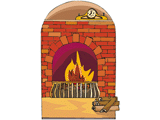Since I feel these last chapters for me shows Chevalier took extreme liberty with the book, I will tackle these two questions:
7. Lots of Information mentioned in the Postscripts at the end of the book. Which caught your attention?
Postscript
The Reader's Patience
Remarkable Creatures is a work of fiction, but many of the people existed, and events such as Colonel Birch's auction and the Geological Society meeting where Conybeare talked about the plesiosaur did take place. And Mary did indeed write at the bottom of the scientific paper she had copied out: "When I write a paper there shall not be but one preface." Sadly she never did write her own scientific paper.
Twenty-first-century attitudes towards time and our expectations of story are very different from the shape of Mary Anning's life. She spent day after day, year after year, doing the same thing on the beach. I have taken the events of her life and condensed them to fit into a narrative that is not stretched beyond the reader's patience. Hence events, while in order, do not always coincide exactly with actual dates and time spans. Plus, of course, I made up plenty. For instance, while there was gossip about Mary and Buckland and Mary and Birch, there was no proof. That is where only a novelist can step in.
My personal feelings about how Chevalier "stepped in" is, I feel it was not fair to write the orchard scene, or the peeing on the beach in close proximity of Mary and Fanny, because there was no proof. I feel an author should be responsible in keeping a real life person's character intact when writing about someone, especially who was as renowned as Mary Anning. Going as far as writing the orchard scene, and the entire somewhat relationship, between Mary and Birch was careless of this author. I can't help but wonder how Mary Anning would feel, knowing Chevalier, pretty much trashed her reputation in print, through her novel? I knew when I read these chapters, it was too hard to image this actually happened. As Steph said, "Sex sells" and someone mentioned a possible movie. But what about relatives of Mary's, even though it would be many generations later, would they be accepting of Chevalier's taking the liberty of marring Mary's reputation with the sex scene?
I am sure back in the 19Th Century there were women who broke the rules of societal etiquette to some degree, but Chevalier wore on this reader's patience, and I do feel she stretched beyond the reader's patience (at least mine for sure) with giving Mary and Elizabeth far more leeway for this era, than I was willing to accept. I kept calling, foul, as I read Eliz going on a ship of all men for days with no chaperon, going into an all men's Geological Society building where no woman had ever entered, sneaking in the hallway listening in on the meeting. Chevalier needed a way to reconcile Mary and Eliz's friendship, and it seems she took grave measures, by having Cuvier doubt the validity and honesty of Mary's plesiosaurus, bringing Molly to ask Eliz to step in and help clear Mary's name.
So, it leaves me wondering if Mary and Eliz actually ever had a rift that lasted years, during their lifetime/friendship. I'm thinking not. And, was there ever a doubt of Mary's validity with the plesiosaurus? I think not. Another thing that upset me is how Chevalier allows Mary to accept the find the Day brothers actually found, pay them for digging it out for her and then taking credit for it as her own. Throughout the entire book Chevalier is making such an important point that Mary should be given credit and recognition for her finds, and how unfair it was for Birch and Buckland to put their names on Mary's finds. NOW it's ok for Mary to do it? Whether the Day brother wanted it or not, in all honesty and integrity, Mary should not have take ownership and credit for it. Even her mother was not happy with her actions. Did this actually happen? I think not. Chevalier says the auction took place, but Eliz ever being there, I think not. Conybeare talked about the plesiosaur at the meeting, but Eliz ever entering the building, I think not.
8. Your overall rating of the book - how many stars? Would you recommend it to a friend?
I'm going to give this book a rating of 5 stars out of 10. I would only recommend this book to a friend, if I knew the friend was interested in fossils and other remarkable creatures. Other than that.....all the rest frustrated me, and wore on my patience, because I feel it was not fair to the reader to "step in" and give way too much liberty in contradiction to the time era's societal etiquette. Like the link stated I posted earlier, authors have guidelines they must stay in when writing about different time frames. Chevalier broke the rules, and as she stated herself, "I made up plenty."
Ciao for now~
